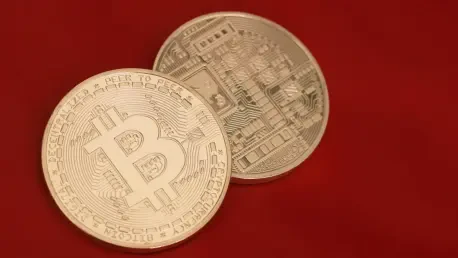In a rapidly evolving financial landscape, the convergence of traditional investment giants with cutting-edge blockchain technology is reshaping the way assets are managed and accessed, with industry leaders like BlackRock and Brevan Howard at the forefront of this revolution. Their recent move to launch tokenized funds on the Sei Network, a high-speed blockchain platform, signals a monumental shift toward integrating regulated finance with decentralized systems. This development, facilitated by KAIO, a regulated real-world asset platform, is not just a technological experiment but a strategic pivot that could redefine efficiency and transparency in asset management. By tokenizing established investment funds, these financial powerhouses are enabling investors to engage with sophisticated strategies directly onchain, all while adhering to institutional-grade compliance standards. This bold step highlights a broader trend where blockchain is no longer a niche concept but a cornerstone of modern financial infrastructure, promising to bridge gaps between conventional markets and the digital economy.
Pioneering Tokenization in Institutional Finance
The partnership between BlackRock, Brevan Howard, and the Sei Network marks a significant milestone in the adoption of blockchain by institutional players, showcasing how tokenization can transform traditional investment vehicles into digital assets. BlackRock, a global leader in asset management, has introduced a tokenized version of its ICS US Dollar Liquidity Fund, one of the largest institutional money market funds, offering investors exposure to low-volatility, yield-bearing products. Similarly, Brevan Howard’s Master Fund brings a macro-focused investment strategy into the Sei ecosystem, broadening the scope of onchain offerings. This collaboration leverages Sei’s high-speed infrastructure to facilitate faster and smoother trading compared to conventional systems, positioning the network as a potential settlement layer for digital assets. Beyond mere accessibility, the integration of KAIO’s compliance framework ensures that these tokenized funds meet stringent regulatory standards, addressing a critical barrier to mainstream adoption and paving the way for broader acceptance in the financial sector.
Bridging Traditional Finance with DeFi Innovations
Looking at the practical implications, tokenized fund shares from BlackRock and Brevan Howard are unlocking new possibilities within decentralized finance, commonly known as DeFi, by serving as collateral or yield reserves in various protocols. This functionality enhances efficiency and transparency, allowing for programmable and interoperable financial systems that were previously unimaginable in regulated markets. The ability to use these shares in stablecoin systems or other DeFi applications demonstrates a tangible bridge between traditional finance and the once-unregulated digital space, fostering a hybrid model of asset management. Industry voices, such as KAIO’s COO Olivier Dang, have described this as a major milestone, while Sei Development Foundation’s Executive Director Justin Barlow emphasizes the network’s pivotal role in institutional blockchain adoption. Reflecting on this journey, the rapid success of BlackRock’s earlier ventures, like the iShares Bitcoin Trust, underscored investor demand for digital-native assets, setting the stage for these tokenized funds to become integral to future financial ecosystems. Moving forward, the focus should be on scaling such innovations, ensuring robust compliance, and exploring further use cases to solidify blockchain’s place in mainstream finance.









